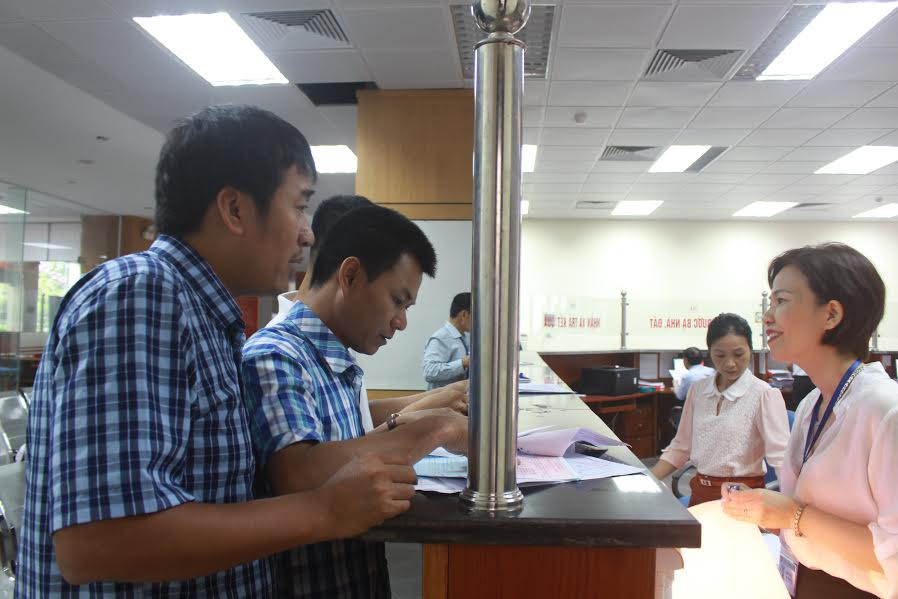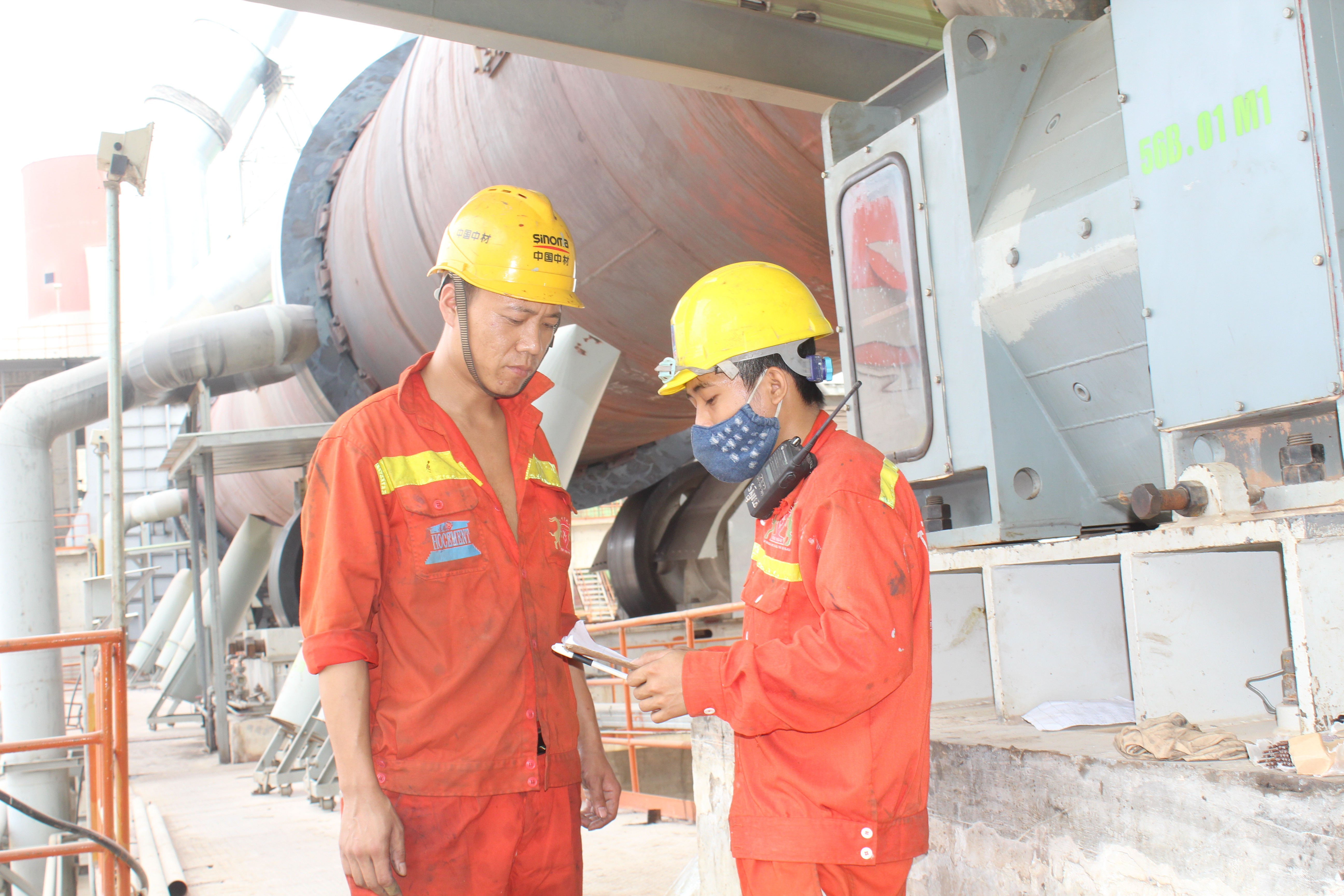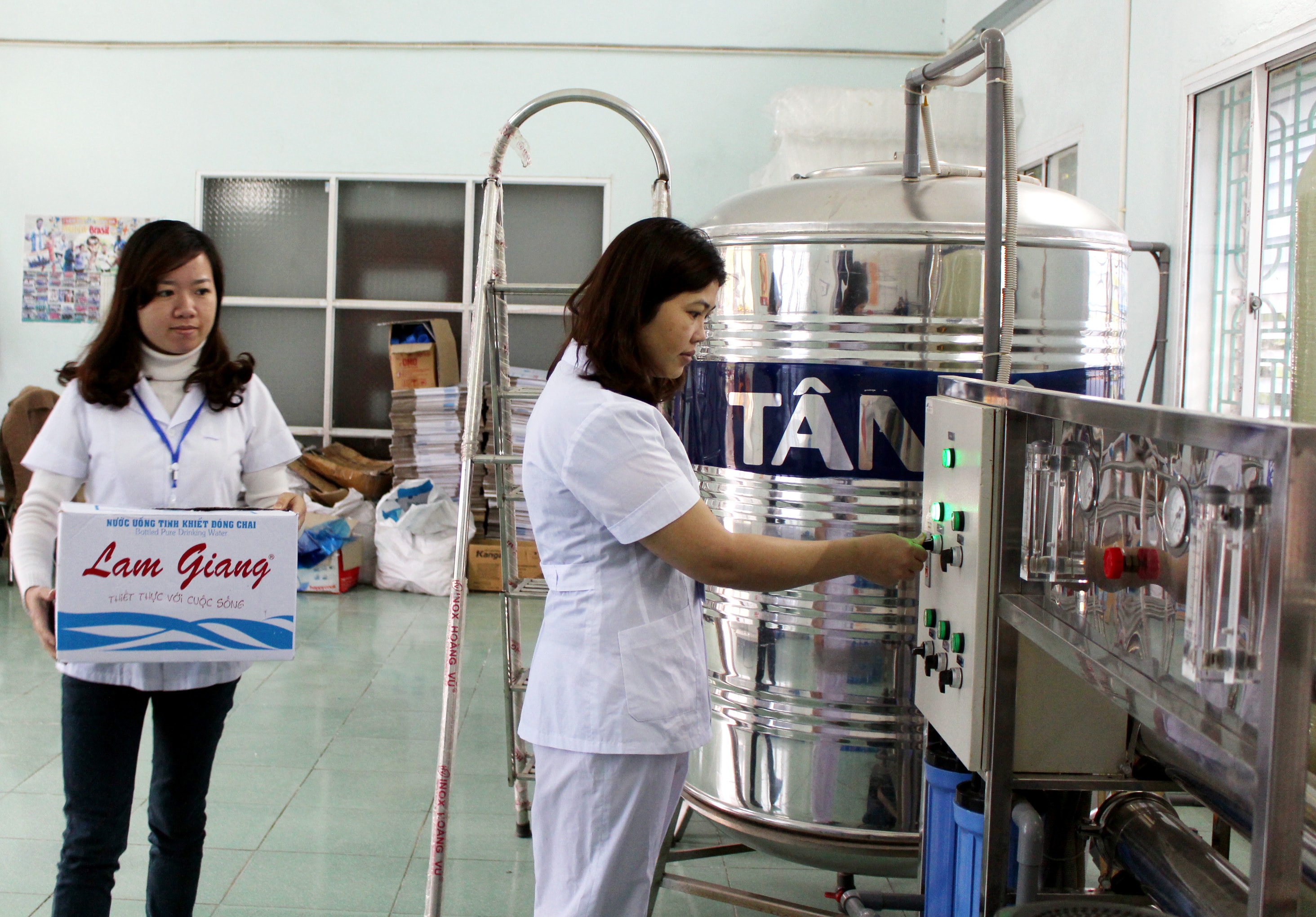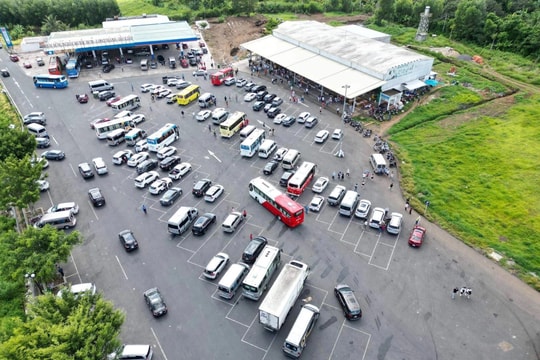Removing obstacles in tax management
(Baonghean) - In 2017, Nghe An Tax Department collected 11,090 billion VND in budget revenue and was awarded the flag for leading the emulation movement. However, there are still difficulties at the grassroots level that need to be resolved soon in the tax management process.
Assign clear targets
To reach the finish line in a difficult context, with high assigned plans, slow production and business, natural disasters and continuous floods, the Nghe An Tax Department has focused on many solutions and resolutely implemented each target. Right from the beginning of the year, each target such as: State budget collection, tax debt collection, inspection, examination, internal examination, tax declaration submission; online tax payment; electronic tax payment... was assigned to each unit, officer and employee. Throughout 2017, the Tax Department regularly directed the Tax Departments and Branches to monitor the progress of implementing the targets and report the results at the monthly meeting.
 |
| Transaction at Vinh Tax Department. Photo: Phuong Thuy |
As of December 31, 2017, Nghe An Tax Department has fully completed the following targets: State budget collection, tax debt collection, inspection, examination at enterprises, internal inspection, tax declaration submission, online tax declaration, electronic tax payment, administrative procedure reform. Although the 2017 revenue estimate increased by 20% compared to the 2016 estimate, increased by 7% compared to the 2016 implementation, by the end of the year, Nghe An Tax Department had excellently completed the budget collection task, contributing to the completion of Nghe An's socio-economic targets in 2017.
However, 4/15 revenue items still did not meet the estimate (a shortfall of 843 billion VND), such as revenue from central state-owned enterprises reached 756.7 billion VND, equal to 87% of the estimate and 96% over the same period. The main reason for the shortfall was the decrease in revenue from a number of key enterprises such as: Hoang Mai Cement, Viettel, Telecommunications, Nghe Tinh Non-ferrous Metals, and cassava starch factories; revenue from local state-owned enterprises reached 123 billion VND, equal to 98% of the estimate and 99% over the same period; revenue from the non-state industrial, commercial and service sector reached 4,145 billion VND, equal to 88% of the estimate and increased by 8% over the same period; revenue from registration fees reached 587.3 billion VND, equal to 80% of the estimate...
Focus from the first day, first month
Mr. Nguyen Xuan Hue - Head of Dien Chau Tax Department shared that currently Dien Chau Tax Department has completed collecting the first business license tax of the year with the amount of 1.3 billion VND, this is not a large amount, however, it is not easy to collect for all businesses. In January, Dien Chau Tax Department collected 45 billion VND for the budget.
Likewise, many tax branches have launched campaigns to promote and complete business license tax and are focusing on other tasks as prescribed. Nghia Dan Tax Branch alone estimated budget revenue in January at 7,040 million VND, of which: Non-state industry and trade reached 4,465 million VND; fees and charges reached 600 million VND; registration fees reached 1 billion VND; personal income tax 200 million VND; land use fees 200 million VND; other revenues 200 million VND.
Mr. Trinh Thanh Hai - Director of Nghe An Tax Department said: Based on the State budget revenue estimates assigned by the Provincial People's Council and People's Committee, and the target budget assigned by the General Department of Taxation, the Tax Department has assigned the task of striving to collect to tax departments and branches according to regulations. Implement the movement of combining emulation evaluation with striving to complete and exceed the assigned State budget revenue estimates right from the first day, first month, and first quarter of 2018.
 |
| Production at Song Lam Cement Factory. Photo by Nguyen Son |
Quickly resolve problems at the grassroots level
In recent years, the tax policy has been constantly changing, which is a difficulty for taxpayers. Although the Tax Department has done a good job of propaganda to support taxpayers, businesses still have to struggle to access new tax policies, not knowing which policies are still valid and which have expired. That has created "loopholes" at the grassroots level that have not been regulated by law, and therefore there are still areas of production and business that are losing tax revenue. For example, online business, private construction tax collection, food and beverage business, restaurants, hotels, gasoline retail, transportation tax collection...
At the recent 2018 task deployment meeting, many opinions from tax branches mentioned initiatives and solutions to "attack" these areas and have shown effectiveness. For example, at Thanh Chuong Tax Branch, in order to collect transport business tax, the branch advised the District People's Committee to establish a Steering Committee, accordingly the branch is the head of the committee, the police side is the deputy head, however, in the invitation to work for transport vehicles, the Deputy head invited and most truck drivers came to work, then paid tax or promised to pay tax...
Another issue is that in order to track down the invoices for purchasing goods, Thanh Chuong Tax Department has compared the invoices. Through inspection and consultation with the district, requiring communes to purchase goods and services to have invoices in those 2 years, the Tax Department has compared the invoices, thereby detecting fraud by business households.
 |
| Bottled water production at Nghe An Water Supply Joint Stock Company. Photo: Chau Lan |
Some branches also reported that the departments and branches refused to grant licenses to sand mines, so the mines operated illegally while still declaring and paying taxes normally.
In tax inspection and examination activities, the current difficulty is that tax officers often do not grasp information about businesses, because the legal mechanism stipulates that businesses self-declare and self-pay, tax officers are not allowed to contact businesses. Due to the lack of information, the results of business inspection and examination are often low... The same situation is also encountered at the branches, including personal business information. The quality of some inspections and examinations at taxpayers' headquarters is not high, the time is prolonged...
The Tax sector carries out its work in 2018 in the context of the socio-economic situation continuing to develop well on all positive aspects of 2017, but the existing problems and shortcomings of the economy, limited fiscal and monetary policy space, and difficulties in production and business activities of enterprises... will continue to impact the general economy and the State budget revenue.
The Tax sector has determined that it is necessary to improve the quality of analysis and forecasting work, ensuring the essential role of consulting and synthesizing in the direction and operation of tax agency heads at all levels. Evaluate and analyze specifically the causes of the increase and decrease in revenue sources in each locality and each revenue sector, thereby promptly synthesizing and reporting on revenue results and forecasting monthly and quarterly revenue in line with actual occurrence.
For problems, the Department assigns the branches and divisions to proactively review and evaluate to advise and propose to the Department and the Provincial People's Committee solutions on mechanisms, policies, and administrative procedure reforms to better manage taxes and create revenue for the state budget. Closely coordinate with relevant agencies to effectively implement newly amended and supplemented tax laws and policies.

In 2017, Nghe An tax revenue is estimated to reach over 12,000 billion VND.
(Baonghean.vn) - That is the data reported at the 9th Conference of the Nghe An Provincial Party Committee recently held.








